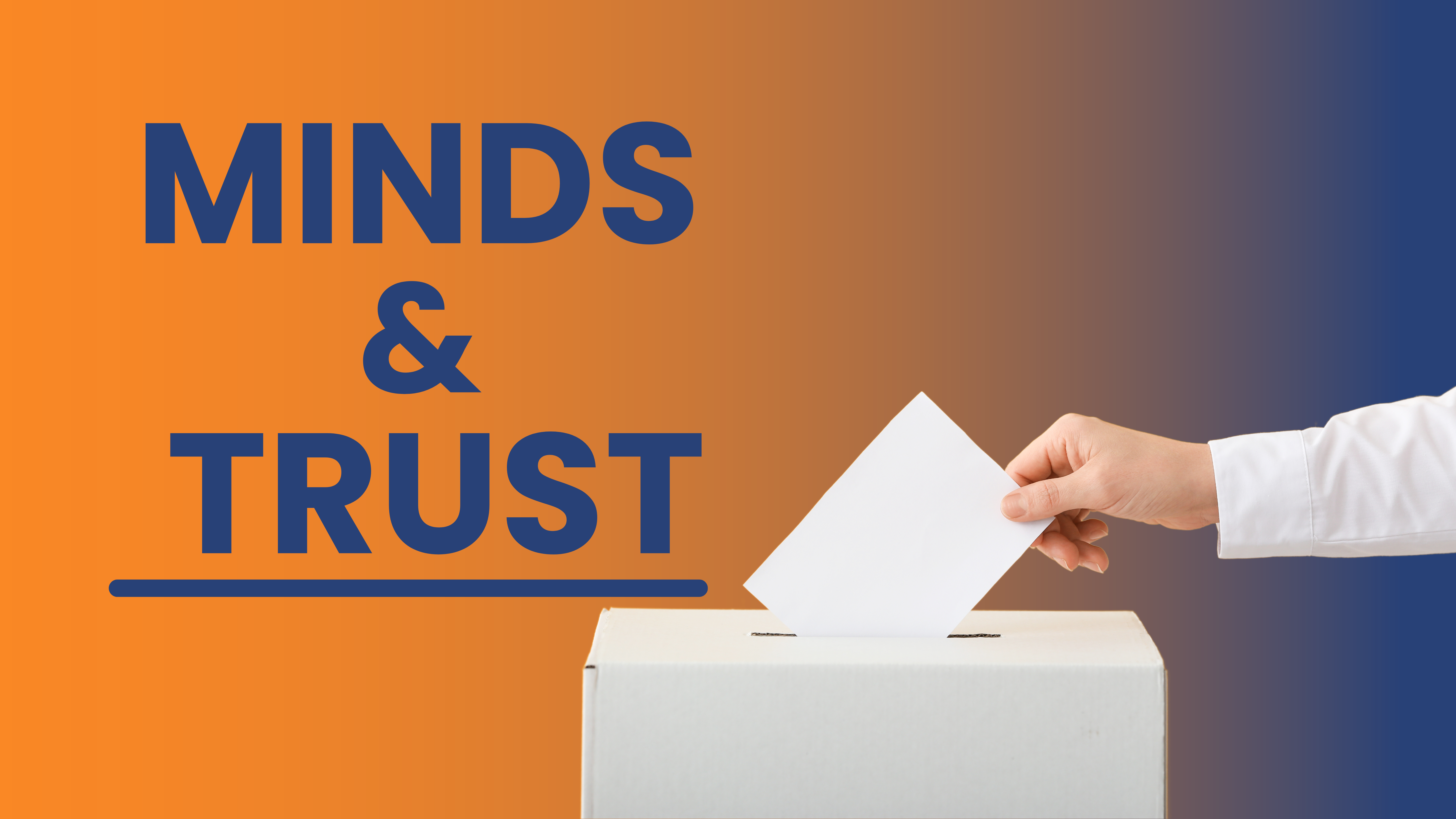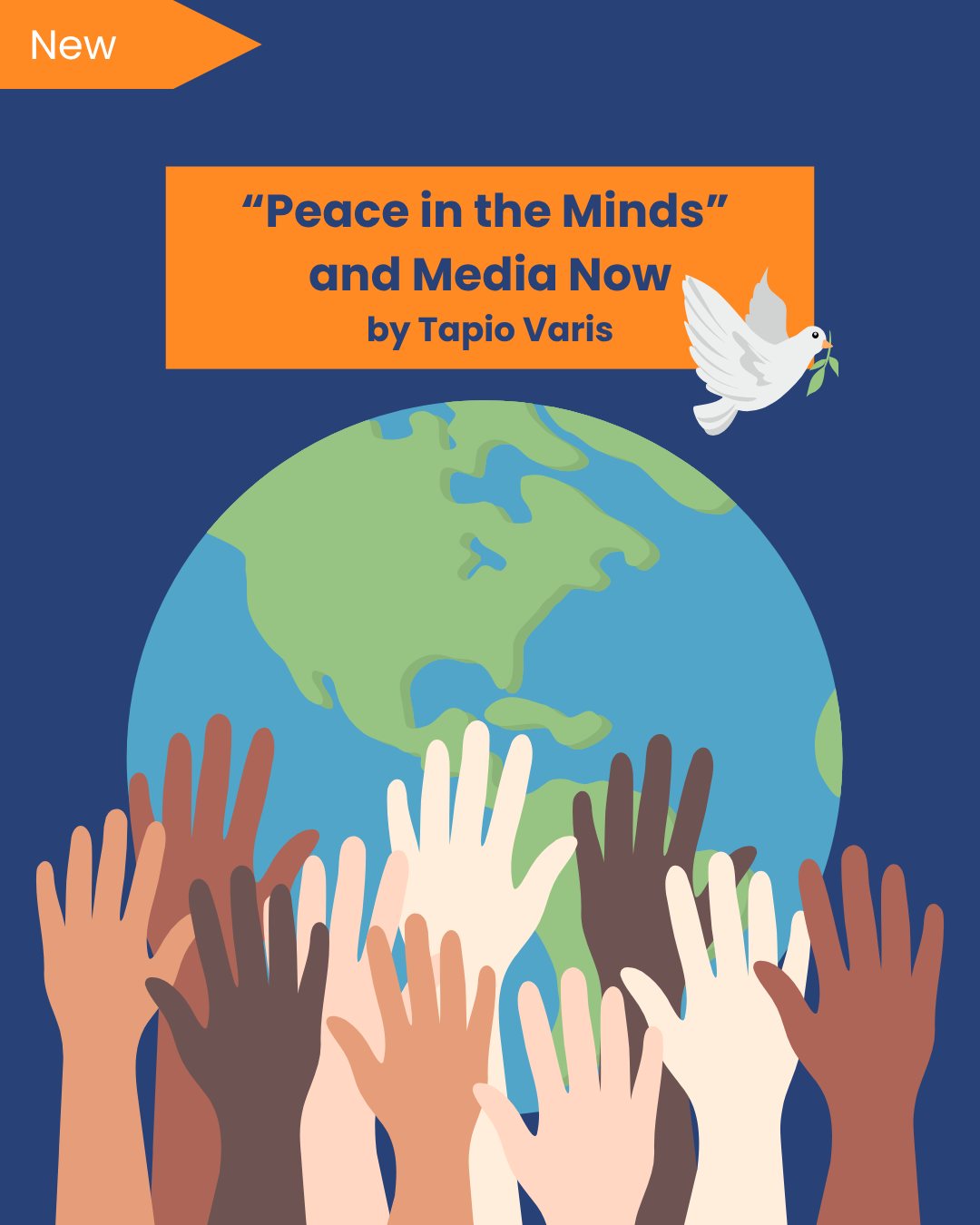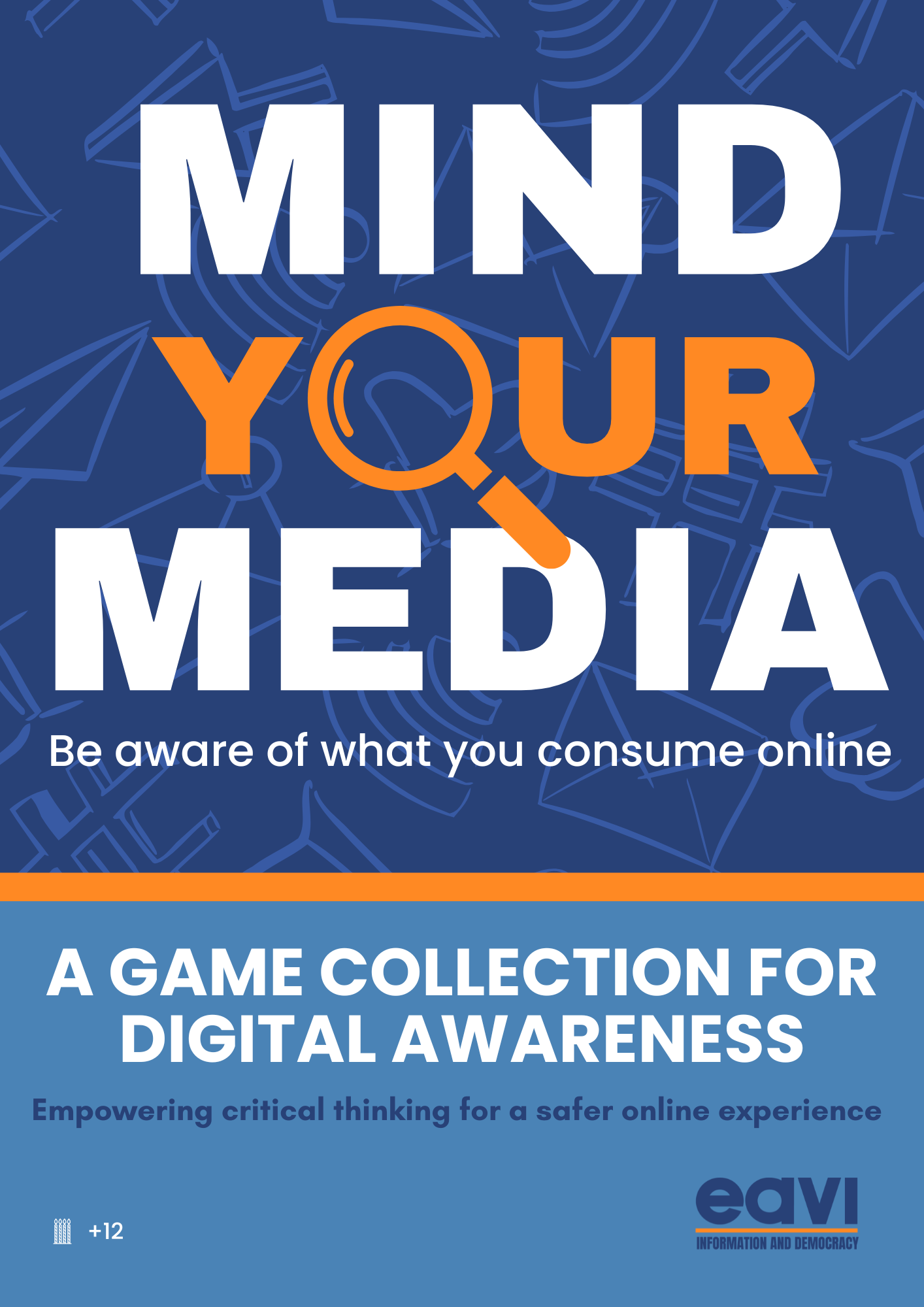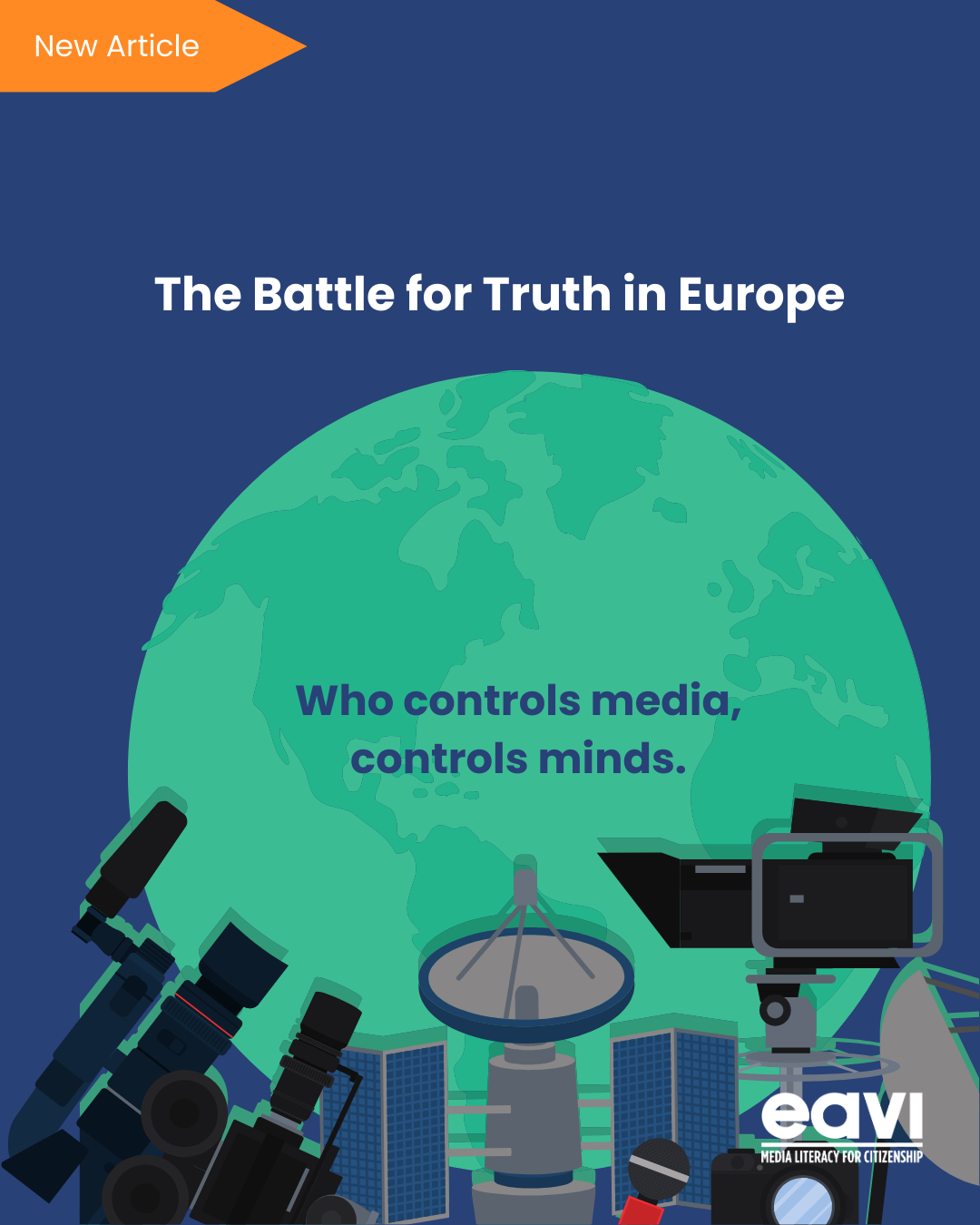
As we look at the campaign for the US elections, an alarming trend is clear: the infantilisation of voters.
Instead of meaningful discussions, we see debates reduced to catchy slogans and personal stories designed to trigger emotions rather than encourage evaluation and thinking. In Europe, we see a similar pattern with the far right making gains. Short, out-of-context videos are being used to personally attack candidates rather than to engage with their ideas, and we are inundated with news about violence designed only to generate anxiety and unjustified fear.
Is this really what we people deserve? Are we just an audience to be entertained?
Are the minds of a significant portion of the population conditioned on purpose to accept anything — propaganda, advertising, disinformation, or distractions — as long as it captures our attention and secures votes?
Experts like Manuel Castells and others have written extensively about the relationship between power, media communication, networks, ownership, the influence of global finance, and how consensus is manufactured through media and social media. At the Voices Festival in Florence, we also delved into the integrity of elections, the impact of disinformation, the role of AI, and the need to develop media literacy skills.
Have our societies, in some ways, disempowered us as citizens? Where can we access reliable information to shape informed opinions? Are we people constantly manipulated?
We are not puppets. People desire more than fear and ignorance — they seek joy and hope for a better future. Our minds are capable, and we should not be treated like gullible children. Instead, cultivating a serene mind is the key to truly understanding the world and facing challenges with calm and reason.
On a recent EAVI trip to Finland, we were reminded how trust positively influences minds.
As we know, democracy thrives on trust. But who do we trust nowadays? Can we trust our politicians to act in the public interest? Can we trust media moguls to realise that a happier life is not achieved by exploiting people, fueling conflicts and causing suffering? How much money is enough money for them?
Still, there are trustworthy people out there. There are good politicians — perhaps not the majority because the current system often rewards the wrong ones, but they exist indeed.
It is probably time to start rebuilding trust in one another — beginning with those closest to us, like our children, our teachers, and our colleagues, and then extending that trust to others, including strangers.
And when it comes time to vote, even with the limited options we are offered, let’s choose those we trust the most.
01.10.2024

As we look at the campaign for the US elections, an alarming trend is clear: the infantilisation of voters.
Instead of meaningful discussions, we see debates reduced to catchy slogans and personal stories designed to trigger emotions rather than encourage evaluation and thinking. In Europe, we see a similar pattern with the far right making gains. Short, out-of-context videos are being used to personally attack candidates rather than to engage with their ideas, and we are inundated with news about violence designed only to generate anxiety and unjustified fear.
Is this really what we people deserve? Are we just an audience to be entertained?
Are the minds of a significant portion of the population conditioned on purpose to accept anything — propaganda, advertising, disinformation, or distractions — as long as it captures our attention and secures votes?
Experts like Manuel Castells and others have written extensively about the relationship between power, media communication, networks, ownership, the influence of global finance, and how consensus is manufactured through media and social media. At the Voices Festival in Florence, we also delved into the integrity of elections, the impact of disinformation, the role of AI, and the need to develop media literacy skills.
Have our societies, in some ways, disempowered us as citizens? Where can we access reliable information to shape informed opinions? Are we people constantly manipulated?
We are not puppets. People desire more than fear and ignorance — they seek joy and hope for a better future. Our minds are capable, and we should not be treated like gullible children. Instead, cultivating a serene mind is the key to truly understanding the world and facing challenges with calm and reason.
On a recent EAVI trip to Finland, we were reminded how trust positively influences minds.
As we know, democracy thrives on trust. But who do we trust nowadays? Can we trust our politicians to act in the public interest? Can we trust media moguls to realise that a happier life is not achieved by exploiting people, fueling conflicts and causing suffering? How much money is enough money for them?
Still, there are trustworthy people out there. There are good politicians — perhaps not the majority because the current system often rewards the wrong ones, but they exist indeed.
It is probably time to start rebuilding trust in one another — beginning with those closest to us, like our children, our teachers, and our colleagues, and then extending that trust to others, including strangers.
And when it comes time to vote, even with the limited options we are offered, let’s choose those we trust the most.
01.10.2024

As we look at the campaign for the US elections, an alarming trend is clear: the infantilisation of voters.
Instead of meaningful discussions, we see debates reduced to catchy slogans and personal stories designed to trigger emotions rather than encourage evaluation and thinking. In Europe, we see a similar pattern with the far right making gains. Short, out-of-context videos are being used to personally attack candidates rather than to engage with their ideas, and we are inundated with news about violence designed only to generate anxiety and unjustified fear.
Is this really what we people deserve? Are we just an audience to be entertained?
Are the minds of a significant portion of the population conditioned on purpose to accept anything — propaganda, advertising, disinformation, or distractions — as long as it captures our attention and secures votes?
Experts like Manuel Castells and others have written extensively about the relationship between power, media communication, networks, ownership, the influence of global finance, and how consensus is manufactured through media and social media. At the Voices Festival in Florence, we also delved into the integrity of elections, the impact of disinformation, the role of AI, and the need to develop media literacy skills.
Have our societies, in some ways, disempowered us as citizens? Where can we access reliable information to shape informed opinions? Are we people constantly manipulated?
We are not puppets. People desire more than fear and ignorance — they seek joy and hope for a better future. Our minds are capable, and we should not be treated like gullible children. Instead, cultivating a serene mind is the key to truly understanding the world and facing challenges with calm and reason.
On a recent EAVI trip to Finland, we were reminded how trust positively influences minds.
As we know, democracy thrives on trust. But who do we trust nowadays? Can we trust our politicians to act in the public interest? Can we trust media moguls to realise that a happier life is not achieved by exploiting people, fueling conflicts and causing suffering? How much money is enough money for them?
Still, there are trustworthy people out there. There are good politicians — perhaps not the majority because the current system often rewards the wrong ones, but they exist indeed.
It is probably time to start rebuilding trust in one another — beginning with those closest to us, like our children, our teachers, and our colleagues, and then extending that trust to others, including strangers.
And when it comes time to vote, even with the limited options we are offered, let’s choose those we trust the most.
01.10.2024








































































































































































